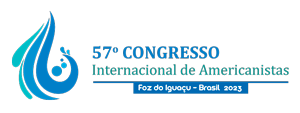| Dados do autor | |
|---|---|
| Sua instituição | Università degli Studi di Milano & Universidade Federal Fluminense UNIMI & UFF |
| País de origem do autor | Brasil |
| Dados co-autor(es) [Máximo de 2 co-autores] | |
| Sua titulação | Pós-Doutorado |
| Proposta de Paper | |
| Área Temática | 21. Relações Internacionais |
| Grupo Temático | Alternative Visions on Global Order: New Perspectives and dialogues for facing the contemporary pandemic crisis |
| Título | New Features on Global Order: Perspectives and dialogues for facing the contemporary global governance challenges |
| Resumo | This work intends to discuss the main challenges to global governance and the International Liberal Order in the context of contemporary tensioning and the possible upcoming scenarios arising from that crisis. The pandemic brought several developments in International Politics, including the downturn in international cooperation. The current context favored the emergence of new tendencies and strengthened existing ones - as the re-structuration of the international system in the medium term but, according to the observable reality, it is already producing the structural conditions to make it more than a possibility. This scenario of political and, possibly, the ideological separation between the West and a large part of the rest (led by China) has been manifest during the outbreak of the pandemic and, later and still pending, on its management. Unlike the 2008 financial crisis, the world and the multilateral international system proved unsuccessful in tackling the challenge, leading countries to address the emergency on their own. It can be said that the liberal paradigm on which the current international order has been built is proving ineffective in providing global answers, while regional initiatives taken under the flag of different political cultures are proving more successful in paving the way out of the crisis scenario for their populations and economies, bringing some relevant inquiries. How will the world look like tomorrow? Is it correct to frame the scenario in terms of liberal versus non-liberal politics? How will both multilateralism and multilateral practices be affected by the current context? Is the world going to witness the birth of a more inclusive, pluralistic international system, or are things moving on the slope towards a fragmented, segregated world in which ideological rivalry will take place at the expense of global multilateral cooperation? These are some issues of interest to this ongoing research. |
| Palavras-chave | |
| Palavras-chave |
|
